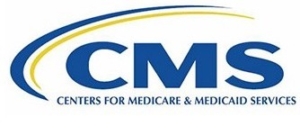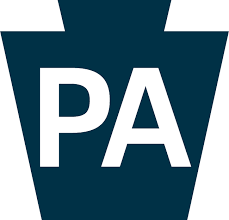PA Health Policy Update for the Week of January 3-7
The following is an update of selected state health policy developments in Pennsylvania for the week of January 3-7, 2022. (Some of the language used below is taken directly from state documents.)
Governor Wolf
 Governor Wolf announced that the state is organizing regional support sites for both hospitals and long-term-care facilities and strike teams to support hospitals facing staffing shortages. The effort, to be coordinated by the Department of Health and the Pennsylvania Emergency Management Agency, will include the following major components:
Governor Wolf announced that the state is organizing regional support sites for both hospitals and long-term-care facilities and strike teams to support hospitals facing staffing shortages. The effort, to be coordinated by the Department of Health and the Pennsylvania Emergency Management Agency, will include the following major components:
- Critical capacity support through the launch of regional support sites for Pennsylvania hospitals suffering from a lack of beds or staffing to meet inpatient needs. Hospitals struggling to meet inpatient demands will have the opportunity to transfer patients to hospitals within these regional sites for care. Each regional site will have increased capacity for approximately 60 days beginning in February, supported by medical support staff including physicians, respiratory therapists, and registered nurses.
- Staffing support that will be sent directly to hospitals from the Department of Health based on identified need. Staffing resources may include physicians, respiratory therapists, and registered nurses for short-term deployments over the next three months.
- Expanded long-term-care capacity through the launch of regional sites to allow for more rapid discharge of patients by hospitals. Each site will increase the state’s capacity to support long-term-care residents with additional medical staff, including registered nurses and aides.
Go here to see the announcement from the governor’s office.
General Assembly
- The House of Representatives will hold voting session during the week of January 10 on Monday (1/10), Tuesday (1/11), and Wednesday (1/12).
- House Bill 1280, which amends the Patient Test Result Information Act, is scheduled for second consideration on Monday and third consideration on Tuesday. This bill would eliminate the definition of “significant abnormality” and revise the written notice requirement for health care providers in an effort to provide clarity and eliminate conflicting interpretations of the act.
- The House Health Committee is scheduled to convene on Tuesday, January 11 at 9:30 a.m. to consider, among other bills, House Bill 1630, which would grant the Pennsylvania Auditor General the authority to audit managed care contracts and subcontracts with pharmacy benefit managers (PBMs) in Medicaid. The committee also will consider Senate Bill 780, which would create public awareness of cytomegalovirus (CMV) and provide for CMV screening for certain newborns.
State Revenue Collection
The Revenue Department announced that Pennsylvania collected $3.8 billion in General Fund revenue in the month of December – $464.3 million, or 13.7 percent, more than projected. Year-to-date General Fund revenue collections total $22.6 billion, which is $1.5 billion, or 7.0 percent, above estimate.
 Department of Human Services
Department of Human Services
The Department of Human Services has issued a Medical Assistance Bulletin explaining that Medicaid will pay pharmacies for the administration of vaccines to Medicaid beneficiaries by licensed pharmacists effective November 1, 2021. The bulletin also provides instructions for pharmacies to submit claims for the administration of vaccines by pharmacists to Medicaid fee-for-service beneficiaries. Find the bulletin here.
Department of Health
- The Department of Health (DOH) has issued revised guidance, applicable to the general population in a community setting, about who needs isolation or quarantine because of a diagnosis of COVID-19 or contact with someone who has been diagnosed with or is suspected of having COVID-19 and how long that isolation or quarantine must last. Find that guidance here.
- DOH has updated its recommended work restrictions for health care workers based on vaccination status and type of exposure.
- DOH has recirculated a series of long-term care-specific vaccine materials that long-term-care facilities can use in their efforts to comply with federal requirements for staff vaccination. Find the vaccine outreach toolkit here and an accompanying fact sheet here.
- DOH has updated its long-term-care facilities COVID-19 visitation guidance FAQ. Find it here. (Note: this link opens to a downloadable file.)
- DOH has issued an alert about an outbreak of hepatitis A in southeastern Pennsylvania. The alert includes instructions for providers about diagnosing the condition, preserving laboratory samples, and reporting diagnosed cases to the state.
- DOH has introduced changes in Lyme disease surveillance requirements and testing practices and has shared these changes with providers in this health alert.
COVID-19: By the Numbers
- Daily COVID-19 case counts are higher than they have been at any time since the pandemic began. The state’s total of 29,026 new cases on Thursday, January 6 was the highest single-day total since the pandemic began, breaking a new record set the previous day.
- The number of new COVID-19-related deaths remains high.
- To date, Pennsylvania has had 1.8 million confirmed cases of COVID-19, nearly 400,000 cases that have been classified as “probably” COVID-19, and 37,500 deaths attributed to the disease.
- All 67 Pennsylvania counties continue to experience a high rate of COVID-19 transmission.
- From December 1 through December 31, the number of Pennsylvanians hospitalized because of COVID-19 rose 33 percent; the number in hospital ICUs because of COVID-19 rose 12 percent; and the number on ventilators because of the virus rose 23 percent.
- This situation is reflected in the high rate of occupancy in the state’s hospitals. There currently are only 477 unoccupied adult ICU beds – 13.4 percent of the total of such beds in the state; 2026 unoccupied medical/surgical beds – 10 percent of such beds; 41 unoccupied pediatric ICU beds (11 percent); 239 unoccupied pediatric beds (21.9 percent); and 912 unoccupied airborne isolation beds (28.4).
- On January 4 the Department of Health elaborated on some of these figures, reporting that approximately 28 percent of all staffed adult ICU beds are occupied by COVID-19 patients and that 32 percent of all ventilators state-wide are in use.
- Media reports confirm the challenges some communities and hospitals are facing, including limited numbers of hospital beds, staffing challenges, and difficulty getting enough COVID-19 testing materials. For examples, see these reports about conditions in the Philadelphia area (here, here, and here), the Pittsburgh area (here and here), and central Pennsylvania.
- According to the CDC, as of Thursday, December 30, 74.1 percent of Pennsylvanians age 18 and older are fully vaccinated.
 Stakeholder Events
Stakeholder Events
Health Research Advisory Committee – January 10
The Department of Health’s Health Research Advisory Committee will hold a virtual public meeting on Monday, January 10, 2022 at 2:30 pm via Microsoft Teams at (267) 332-8737 with Conference ID: 994 021 882#. Learn more from this Pennsylvania Bulletin notice.
Medical Marijuana Advisory Board – January 27
The Medical Marijuana Advisory Board will hold virtual meetings on the following days at 10:00 am: Thursday, January 27, 2022; Tuesday, March 22, 2022; Thursday, May 26, 2022; Thursday, July 28, 2022; Tuesday, September 27, 2022; and Tuesday, November 22, 2022. These virtual meetings will be broadcasted live for the public through Commonwealth Media Services. Check www.medicalmarijuana.pa.gov and click on the Medical Marijuana Advisory Board tab for live streaming information the day of the virtual meeting. Learn more from this Pennsylvania Bulletin notice.
Special Pharmaceutical Benefits Program Advisory Council – January 27
The Statewide Special Pharmaceutical Benefits Program Advisory Council will hold a public teleconference meeting on Thursday, January 27, 2022 at 10 am. To participate dial in by location at (412) 648-8888 or (866) 588-4789. The meeting ID is 487 872 318#. Learn more from this Pennsylvania Bulletin notice.
 There are now positive cases of COVID-19 in 60 of Pennsylvania’s 67 counties.
There are now positive cases of COVID-19 in 60 of Pennsylvania’s 67 counties. The Office of Children, Youth, and Families (OCYF) has developed these
The Office of Children, Youth, and Families (OCYF) has developed these  CMS has introduced dozens of changes that involve waivers from current regulations and requirements. A comprehensive, 26-page CMS document describing these changes can be found
CMS has introduced dozens of changes that involve waivers from current regulations and requirements. A comprehensive, 26-page CMS document describing these changes can be found  CMS is waiving current requirements to permit physicians whose privileges will expire to continue practicing at the hospital and for new physicians to be able to practice before full medical staff/governing body review and approval to address workforce concerns related to COVID-19. CMS also is waiving requirements about details of the credentialing and privileging process.
CMS is waiving current requirements to permit physicians whose privileges will expire to continue practicing at the hospital and for new physicians to be able to practice before full medical staff/governing body review and approval to address workforce concerns related to COVID-19. CMS also is waiving requirements about details of the credentialing and privileging process. CMS is waiving the requirement that physicians and non-physician practitioners must perform in-person visits for nursing home residents and will permit visits to be conducted, as appropriate, via telehealth options.
CMS is waiving the requirement that physicians and non-physician practitioners must perform in-person visits for nursing home residents and will permit visits to be conducted, as appropriate, via telehealth options. CMS is waiving various requirements that limit and define the use and documentation of verbal orders in a hospital.
CMS is waiving various requirements that limit and define the use and documentation of verbal orders in a hospital. CMS has published guidance on
CMS has published guidance on  Governor Wolf
Governor Wolf Pennsylvania Department of Health
Pennsylvania Department of Health CMS has posted a fact sheet explaining to health care provider
CMS has posted a fact sheet explaining to health care provider  A new update outlines
A new update outlines  The Department of Drug and Alcohol Programs (DDAP) has issued a document clarifying the state’s response to federal guidance on the disclosure of patients’ substance abuse disorder records during the telehealth process. See that policy clarification
The Department of Drug and Alcohol Programs (DDAP) has issued a document clarifying the state’s response to federal guidance on the disclosure of patients’ substance abuse disorder records during the telehealth process. See that policy clarification  Since yesterday, the Department of Human Services has issued the following four new guidance documents:
Since yesterday, the Department of Human Services has issued the following four new guidance documents: Federal
Federal